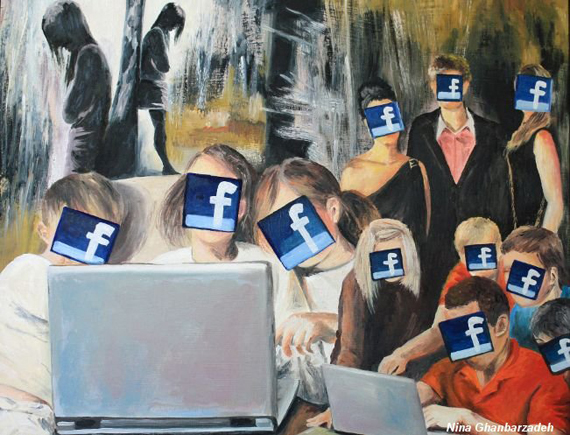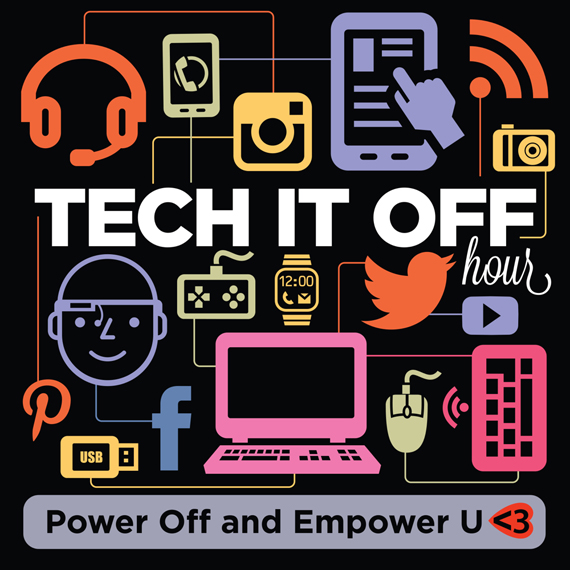Last week 'content queen' Arianna Huffington took center stage at a Chicago benefit to talk about her new book, Thrive. I'd seen her 'live' before, but this time, she seemed more statuesque, stunning and effervescent than I remembered. With her charming Greek accent and self-deprecating wit out in full force, it was clear that she's a masterful storyteller whose oratory gift is enhanced by her individuality. And given her no-holds-barred sensibility that kept the room laughing, it's clear she's the type of person that every successful woman wants in her life.
But most significantly, in between her mirth was a compelling message: We must add a third metric to our definition of success that goes far beyond money and power in order to 'Thrive,' as defined in her book. The concept unfolds in a four-pillar strategy that includes well-being, wisdom, wonder and giving. She makes the point that we live in a high-stress, burned-out, constantly plugged-in, sleep- and time-deprived culture. Eventually, this limits our effectiveness, our productivity, our creativity, and our growth experiences and ultimately keeps us from reaching a higher level of success and fulfillment.

Frankly, I agree and think that our generation, via experimentation, is gradually concluding that Arianna is right. Many of my counterparts are starting to put into practice what she is preaching, and her book is accelerating the movement. They are talking about it, relishing it and sharing it with their increasingly smaller and closer circle of friends.
I'm not worried that Baby Boomers, and the generations before and after them (Silent and X), will adopt these practices -- but I am worried that Millennials, and their successors, Gen Z and the Alphas behind them, won't. Why?
Our Youth Consume Lots Of Content And Rarely Power Off
Given that Millennials spend 18 hours per day consuming media, according to new research from Crowdtap reported in Entrepreneur magazine, they are obviously fueling the 6 billion Google searches currently logged daily. And the younger half of this generation, those ages 18-24, send 67 texts daily, which is nearly double that of Millennials aged 25-34, notes Experian research reported by BusinessInsider.
In fact, Millennials are already considered addicted and perpetually connected, sleeping with their phones, notes Pew Research Center in its notable study "The Millennials: Confident. Connected. Open to Change." A shocking 20 percent of Millennials use their phones while having sex, notes clinical psychiatrist Dr. Dale Archer in Psychology Today. Coupled with research that suggests that cell phone use can give rise to social and behavioral problems, such as separation anxiety and addiction, as Dr. Archer also notes in Psychology Today, and numbers from Pew Research that show that 98 percent of Millennials have cell phones, my concern that Millennials are too plugged in are well founded.
So the question becomes 'How do we get them to understand the importance and benefit of a culture that also embraces the Thrive mentality?'
After all, Millennials are truly one of the most creative entrepreneurial generations yet, especially in merging technology and social change. According to a Populus survey, more than a quarter of 16-25-year-olds want to set up their own businesses that will improve the world rather than their own bank accounts, and 14 percent are in the process of doing so compared with 8 percent just a year ago, reports a recent article in The Guardian.
While technology has leveled the playing field and opened up remarkable opportunities for Millennials, it is their ability to consume these exponential innovations at unprecedented rates that has garnered America renewed global respect. But more than ever, this begs the obvious here: How can we get them to connect with Thrive?
Before I offer what likely may be an unpopular recommendation, I want to say I love technology wholeheartedly and have been overseeing technology-based businesses that require marketing-related solutions for well over a decade. The computer--especially in its most mobile incarnation, the smartphone, has been the single biggest productivity boost in my lifetime. At this point, I could not live without one.
Yet this does not diminish my concern for our stressed out, multi-tasking, sleep- interrupted and -deprived, matrix-connected children.
The biggest productivity boost in my lifetime has a silent ugly dark side that we whisper about in the same breath as we shame the digital and mobile divide. In quiet moments, we share our concerns with sisters, brothers, girlfriends and even our mothers. We ask how will it affect our children? How can we get them to disconnect?
Yet every child in this world should have access to technology, for it can, and will, change and improve our world in yet-to-be-imagined ways. At the same time, we need to create a value system around technology that institutionalizes the immense benefits of uninterrupted think-time, the benefits of mindfulness, the benefits of seven to eight hours of sleep a night, the benefits of face-to-face interaction and the benefits of human empathy, compassion and caring.
Technology and this value system can--and must--co-exist.
So how do we get the attention of these digital natives, from the Millennials to the Gen Zs and Alphas behind them? One thing is certain: we need to start now.
One solution that comes to my mind is to engage them in one very simple, very easy initiative--just 'Tech It Off.' Let's devote one hour on a specific day, worldwide, to going tech-free. We will ask the world's people to power off their mobile phones and TVs; shut off their computers and tablets; say no to Facebook, Twitter, Instagram and Vine; and even take off their wearables--yes--those smartwatches, glasses and more that are anticipated to only get more popular in coming years, reports CBS' c|net--and 'Tech It Off' for one hour on a specific day.

Why one hour and not a full day?
Like toddlers learning to walk, unplugging is an acquired skill. For the connected generations, it is best to start with baby steps. Some will lack the desire and willpower to even get through that first hour, while for others a full day is just not feasible from a work perspective. And we know, from studies, that Millennials already feel they can't survive without their mobile devices and are addicted. Baby steps start the conversation and allow us to experience these values in a world that still embraces technology appropriately. If we start the conversation, they will find their own time to embrace it and turn it into a tradition.
Think about the movie "The Day the Earth Stood Still," when the aliens turned off all power in the universe. Humans were washed with so many emotions, from discomfort and isolation to finally wonder. And suddenly they intuitively understood they are part of a much larger universe and what all of us do matters. Co-existence is possible, but only with a clear set of values. In the movie, the value structure was peace and non-violence. In our universe, hurtling toward a technology-based foundation faster than ever, the value structure is Thrive and the simple tools it proffers.
Like Earth Hour, where we turn off our lights worldwide for an hour the last Saturday of March to cherish the planet, Tech It Off hour can raise awareness around the need to disconnect from technology to cherish our psyches and skills we must nurture to embrace a better way to live. The benefits will be improved productivity, mental and physical well-being, creativity, communication and intimacy.
Considering we spend the lion's share of our time figuring out how to get the Millennial generation, at 86-million strong, the largest cohort to ever exist, to buy our products and services--especially since their buying power is rising as they age and older generations pass, notes Barron's--this is an action we can take to give something to them and enhance their quality of life. 'Content Queen' Arianna Huffington closes "Thrive," the book, with her thoughts on giving back.
So let's help our children, and their children, learn how to de-stress and restore some balance to their lives. This simple act can start to change their lives, and ours, for the better. But to do so will require mass collaboration from muscle players, namely the powerhouses of marketing like McDonald's, Pepsi, Coca-Cola, Unilever, Amazon, Facebook, Google, Instagram, Nike and more. So will you please consider using your marketing muscle to encourage our children to Tech It Off for one hour, on Oct. 10, from 8pm to 9pm, in each of our time zones?
